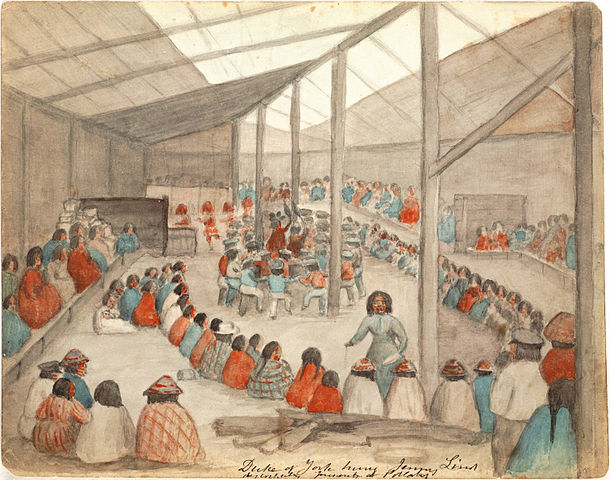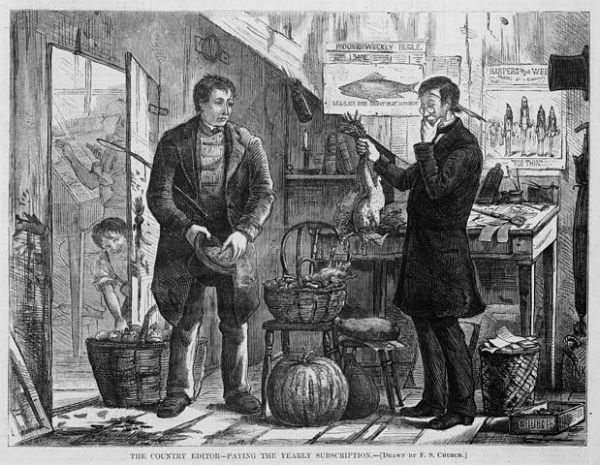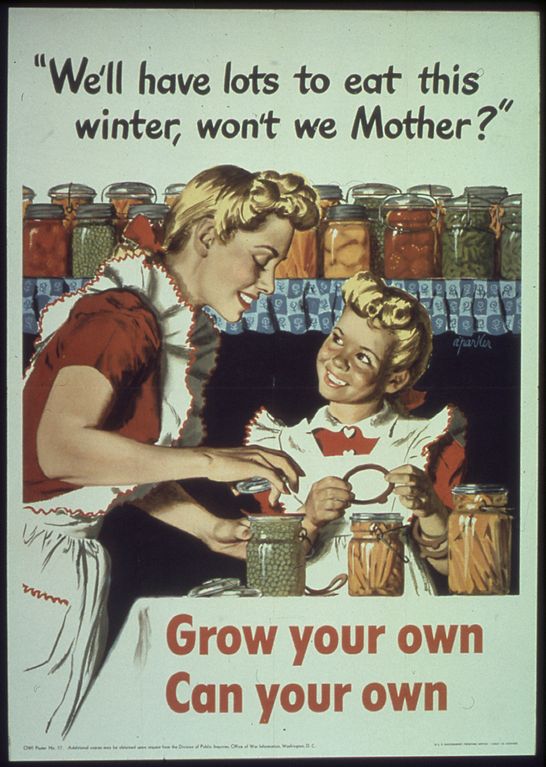Ever noticed how people-centered community projects seldom lose their utility? They may run out of steam - or people to shepherd them - but they will reappear in a new decade and people will say, "What a great idea!" Here's one such idea whose time may be coming 'round again soon. -Ed.
Money is SO overrated. Some of the coolest things I have I got by trading my services. Like the gorgeous quilt I got from a friend whose web site I got going a few years ago. Books, paintings, massages, tickets to great plays, carpentry help, and lots of others things – all without spending a dime (or maybe that's a dollar these days).
Barter is defined as "trade of goods or services without the exchange of money". It's been around for a long time. Before the advent of modern paper and electronic money, people traded their goods and services either directly, or by an agreed-upon medium of exchange, such as precious stones, or cows. Trading, or bartering, with Native American tribes, was big business. In fact, Astoria's founder, John Jacob Astor, became the richest man in the United States from a combination of fur trading and real estate. In a way, you could say that Astoria was born of bartering.
To the Native Americans in the Pacific Northwest, bartering is nothing new. Their's has always been more of a gift economy, where someone's worth is defined by how much they give away, and goods and services circulate by being essentially passed around as gifts. This tradition is manifested in the potlatch, which means, in Chinook Jargon, "to give away" or "gift".

I can speak from experience about the power of the potlatch. When my son was in 2nd grade, a bunch of parents, teachers and middle school students from the school (AS#1 in Seattle) had the honor of attending a potlatch ceremony in Hydaburg, Alaska, where we gave the people of that town a Haida war canoe that our school built from a huge cedar log donated by Weyerhaeuser (see photo). It took us 3 years and countless hours of sweat and tears to build the canoe and learn about the Haida people and their ways from the Haida artist who directed the project, Robert Peele (aka Saaduuts). Besides putting us up and feeding us venison, fresh crab, and other fresh seafood, the whole town came to the potlatch dinner and celebration, where we all were showered with gifts, including eagle feathers, Haida conical cedar hats, T-shirts, toys for the kids, and the best potluck I've ever attended. Every resident of Hydaburg brought something to eat, and many dance troupes from nearby towns came to dance for us. We had also brought tons of gifts for the children of the village, made by AS#1 students. It was a week I will probably never forget. And not one penny was spent by anyone in our party all week. In fact, it would have been an insult to pay for their hospitality.
Locally, plenty of us use(d) bartering in our daily routines, and as part of our business activities. HIPFiSH's editor and publisher, Dinah Urell, told me, "My father carried on a tradition from his father, that of the art of smoking fish. My grandfather built a formidable smokehouse, the 12' high x 6' round smoker erected from a steel shipping barrel off of an old cargo vessel. That smokehouse cured thousands of pounds of salmon, sturgeon and smelt, brought by fishermen, over a 60 year span. Never a dollar was exchanged, only trade for fish, and occasionally a good bottle of whiskey."
My neighbor, Tim Kennedy, says, "I have always incorporated a small amount of trading into my construction business. I usually trade for something special that I might not ordinarily purchase. Trading gets me better acquainted with people I might not otherwise meet." And Kennedy can tell lots of stories about some of those people.
Iris Sullivan and Joe Garrison of The Blue Scorcher Bakery and Café in Astoria say that trading has really helped to get the project off the ground. Kennedy put together the front counter, which includes several shingles from a Pendleton church that was deconstructed by a friend of his (see photo). Some of the produce that gets cooked into delicious vegetarian meals comes from local farmers and gardeners who trade their food for the finished product. Electrical work was traded for a party for the electrician's son. Baking equipment, table tops, massage and acupuncture, and even the signs outside were all obtained by trading for products sold at the Scorcher. Sullivan and Garrison hope to use more bartering in the future. "It really helps with cash flow," says Sullivan.
Bartering is also big business these days, including the formality of user agreements, legal notices, and lots of rules. You can use Craig's List, for instance, to give your no-longer-useful-to-you sportscar (I'm not making this up) to a total stranger in exchange for his or her National Geographic magazine collection. While not the original concept of a personal exchange, these mediated trades can really increase the potential market for your stuff!
Money is only useful when you don't have anything that the other party in a transaction wants or needs. This is the case with a good portion of the larger, remote corporations that sell you things – like the computer I'm writing this on – that you need. What could I possibly give to Apple Computer that they would take in exchange for my iMac except money (which they could then use to buy parts, pay their employees, or invest in a new product)?
Things are different if you know your trading partner, or if they are either a person or a small company that needs something you have. Why go through the "middleman" of money if you don't have to?
If money is the root of all evil, then bartering is the ticket to heaven (can I trade for that?). And these days, when people just don't have much of that evil stuff to spend, bartering is becoming – like in the Great Depression – more mainstream. During the 1930s, when money was scarce, and confidence in the system was waning, people in the U.S. and elsewhere developed mutual support structures, like co-ops, and would share, repair and recycle, bypassing the market and financial system. Scrip of all kinds was issued, and independent currencies and barter abounded. Some of these have survived to today.
Let's look at four different systems of moneyless exchange, or barter, that are around today, and that you could use to get what you need, get rid of what you don't need, or give what you can.
Thrift shops, or consignment stores, often keep tabs of donations, and then allow those donating to the store to purchase items in the store (from other donators) using the credit built up in that account. Consider kids' clothes. When junior grows out of his clothes, if he can't hand them down to younger siblings or cousins, then you can bring them to a local store that sells kids' clothes on consignment, and start an account. If you see clothes that fit junior now, off you go for free, if the value of his old clothes exceeds that of the ones you're "buying". If your account goes negative for a while, it's OK, as long as you eventually bring in some clothes of value to trade. When junior grows out of kids' clothes, you settle up with the store, and terminate the account.
This concept of a mutual trade, where the exchange may not be at the same time both ways, or even with the same person or business (let's say the store has two or three branches, or other stores honor the account), can be generalized in what's called a mutual exchange system. Two broad examples of these systems are LETS, or Local Exchange Trading Systems, and commercial barter systems.
Originated in 1983 by Michael Linton in British Columbia, LETS work if money is scarce, but skills, needs and resources are available. Like a bank, each member has an account, which is credited when the member sells something, and debited when the member buys something. No interest is charged or earned. Some LETS have paper currency, some don't. It's not required. Most LETS have directories that give members a list of available services, and some have web-based transaction services. With LETS, members can obtain goods and services, and be gainfully "employed" by offering their skills, labor, time, goods or services to other members. LETS abound abroad, with Australia and New Zealand leading the way.
Here on the North Coast, a LETS-type system was thriving in the Manzanita area around the turn of the century. Modelled on one of the pioneering LETS in Ithaca, New York, the system, which had a currency called North Coast Notes, was started because of the scare of Y2K. Eventually, according to one of the founders, Robert Brook, the system foundered. "We just didn't have enough diversity to make it work. I think it could work in Astoria, though," said Brook. In its heyday, the North Coast Notes network had monthly potlucks where lots of trading was done. Similar trading fairs are common in many LETS around the world. The only vestige of the system left is a monthly North Coast Notes Calendar, distributed through the BBQ e-mail list. "Given the economy, I'm thinking it may be about time to start it up again," said Brook.
A similar system, developed by Edgar Cahn in the 1980s to address the inadequacy of government social programs in the U.S., is called a service credit system, or time bank. For every hour of time you give, let's say for elderly or child care, or education, you get a time dollar in your account. You can then use that time dollar for similar services for yourself. The cool thing about this system is that everyone's time is worth the same! There are time banks in Seattle (timebucks.org) and Portland (pdxtimebank.org).
Commercial barter systems are becoming very popular in the business world. These systems, often run by independent companies, can help to reduce excess inventories and assets, and obtain necessary supplies or services without using precious cash resources. For small businesses, often with very little cash on hand, barter or trade exchanges can be an important means of staying afloat. There are hundreds of these systems in the world, with several operating in the U.S. They are similar to LETS, where the business maintains an account, using some (usually virtual) unit of credit to buy and sell products and services with other businesses, usually, but not always, in the same geographic area. Most third-party gatekeepers of these systems charge a fee to operate the system, similar to some LETS.
This bartering survey wouldn't be complete without mentioning Freecycle (freecycle.org), which is a one-way bartering system that is almost completely responsible for helping my family, and so many others, to clear out their garages and storage spaces, while making so many people happy, and in some cases, creating lasting friendships. Freecycle is eBay without money, with the auctioning done via need or community potential, instead of highest bidder. The focus is on goods, not services, but the line is blurred by things like gift certificates and tickets for events. (To sign up for the local chapter of Freecycle, surf to http://www.freecycle.org/group/US/Oregon/ Astoria.) Unlike LETS, there is no accounting system, since all items are assumed to have no value. But like the above systems, each member gives according their ability (or need to get rid of excess goods!), and receives according to their needs (as long as their need is available from another member!).
Unlikely to fully supply our needs, barter systems can supplement the cash economy, and keep us going in hard times like the present. Whether you join the Freecycle community, start a local trading club, get your business into commercial barter, or just trade with friends, the chances are you'll enjoy the many benefits of barter, without any (monetary) costs!
Closely related to bartering, community currencies are another topic we hope to bring to you in a future issue of HIPFiSH. If you have a bartering story of your own, please send it to HIPFiSH at hipfi, and we'll post it on our web site (hipfishmonthly.com).
For more information:
Transaction Net: http://www.transaction.net/
TimeBanks: http://www.timebanks.org/
Yes! Magazine, Summer 1997 issue: http://www.yesmagazine.org/ default.asp?ID=93
LETS-Linkup (International LETS Directory): http://www.lets-linkup.com/ International Reciprocal Trade Association (commercial bartering): http:// www.irta.com/
Barter News: http://www.barternews.com/
ReinventingMoney.com: http://www.reinventingmoney.com/index.html
U-Exchange: http://www.u-exchange.com/
Money, Thomas H. Greco, Jr., Chelsea Green Publishing Company, 2001.
Going Local, Michael H. Shuman, Routledge, 2000.
Also see IRS Topic No. 420, Bartering Income
This article first apeared in hipfish monthly, March, 2009.
Author
Bob Goldberg lived in New York City, Philadelphia, Buffalo, Adelaide, Berkeley and Seattle before moving to Astoria in 2005. He is currently a substitute teacher and instructional aide in Clatsop County schools, tutors at the college here, and volunteers with several local performing groups and the local community radio station. He is the webmaster for HIPFiSHmonthly, and still occasionally pens an article for them. Current passions include waste reduction and recycling at home and in schools, path maintenance in Astoria, and the North Coast Puzzle Club. Look for some of his writing at https://www>. astoriabob.net.





